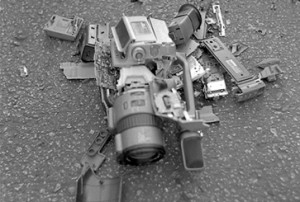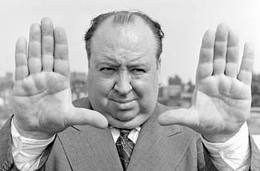

Over the last ten years it has become common practice to schedule both a court reporter and a videographer for deposition videos. While there are many advantages to having a video record and a written record of a deposition, two reasons generally predominate. First, there are many witnesses who simply will not be available at trial. A video record of absentee witnesses is the only way for a jury to fully appreciate their testimony. Second, and perhaps more importantly, video is used to emphasize testimony. A savvy attorney can play back a witness’s video deposition to impeach the same witness on the stand. It is pretty impressive when you see a witness contradicted by his own video recording. If you think it is tough to argue with your spouse, try arguing with yourself.
Synchronized Video Depositions
Video alone is a strong form of testimony. However, a video recording that has been synchronized to a written transcript is even more powerful. Synchronization allows a jury to see the words spoken by a witness while they are spoken. An attorney can freeze a frame during opening and closing in order to show the jury the exact words spoken by a witness. Seeing and hearing the witness’s demeanor and intonation further conveys the real power of their testimony. Think about it, if you have to introduce written deposition testimony at trial, it will typically be read from a transcript by a court clerk in a monotone voice. If, on the other hand, you have a synchronized transcript then the jury will also hear and see the witness who may be sobbing with his head on the table while speaking. Obviously, a synchronized transcript is a far more powerful tool than just a written deposition. When you are scheduling a deposition, make sure that your court reporting firm can offer synchronization services.
Video Depositions Must be Carefully Reviewed Before Trial
Like most jurisdictions, Kentucky follows the general rule that anything which is relevant or likely to lead to admissible evidence is discoverable. As a result, almost every question imaginable is on the table during a deposition. However, many questions and answers from depositions are not admissible at trial. Here in Louisville, Kentucky, a mistrial was recently ordered in a medical malpractice trial that was in its tenth day of testimony. Plaintiff’s counsel played a video deposition in which he had asked the defendant doctor the following: “I presume that while you were working you had a professional liability insurance?” Upon hearing this played to the jury, he immediately stopped the video and approached the bench. By all accounts, the attorney involved is one of the best in the region and had carried himself well during trial. Defense counsel, also exceptional attorneys, requested a mistrial. Plaintiff responded by telling the judge that he had requested that the offending language be removed from the video prior to trial. He gestured toward a written transcript and suggested that he had noted for the language to be removed. In granting the mistrial, the Circuit Court Judge emphasized that the jury had both heard the question and seen the question in writing on the screen before them. The impact of the insurance discussion could not be undone and a mistrial had to be granted (after ten days of testimony, including many experts). Again, our Lousiville court reporters and videographers were not involved in the discovery portion of the above-referenced trial.
Rely on a Professional Court Reporter and Videographer
So how can attorneys harness the power of video depositions while avoiding the many pitfalls that come with them? Simple: rely on professional court reporters and videographers. In the case above, it is not clear whether the offending video was created by a third-party trial presentation firm or simply the attorney’s staff. Had the lawyer used Kentuckiana Court Reporters, this problem would not have occurred. Our staff of in-house videographers maintain objection logs during depositions which makes it very easy for us to work with attorneys to edit video prior to trial. We communicate with counsel and have them acknowledge in writing that they have had the chance to remove any objectionable material before trial. Even if a trial occurs five years after a video deposition, we will still edit our video for no additional charge. We know our videos better than a third-party trial presentation company and can easily provide edits.

Our videographers are full-time employees who take more depositions in two months than most attorneys do in year. This is in sharp contrast to reporters who might outsource their video depositions to a general videographer who spends more time taking wedding photos than depositions. As an attorney you are a professional. Your vendors should be professionals as well. In short, do not try to take your own video depositions (as is allowed in Kentucky) and choose your videographer carefully. Failure to do so could result in the exclusion of a video, a mistrial or even an adverse verdict.
For more information about video depositions and synchronization, visit us at:
http://34.224.180.136/legal-video-depostion/video-depositions/
or
http://34.224.180.136/legal-video-depostion/synchronized-transcripts/
[br]
Kentuckiana Court Reporters
730 West Main Street, Louisville, KY 40202 | 710 East Main Street, Lexington, KY 40502
502-589-2273
schedule@kentuckianareporters.com

